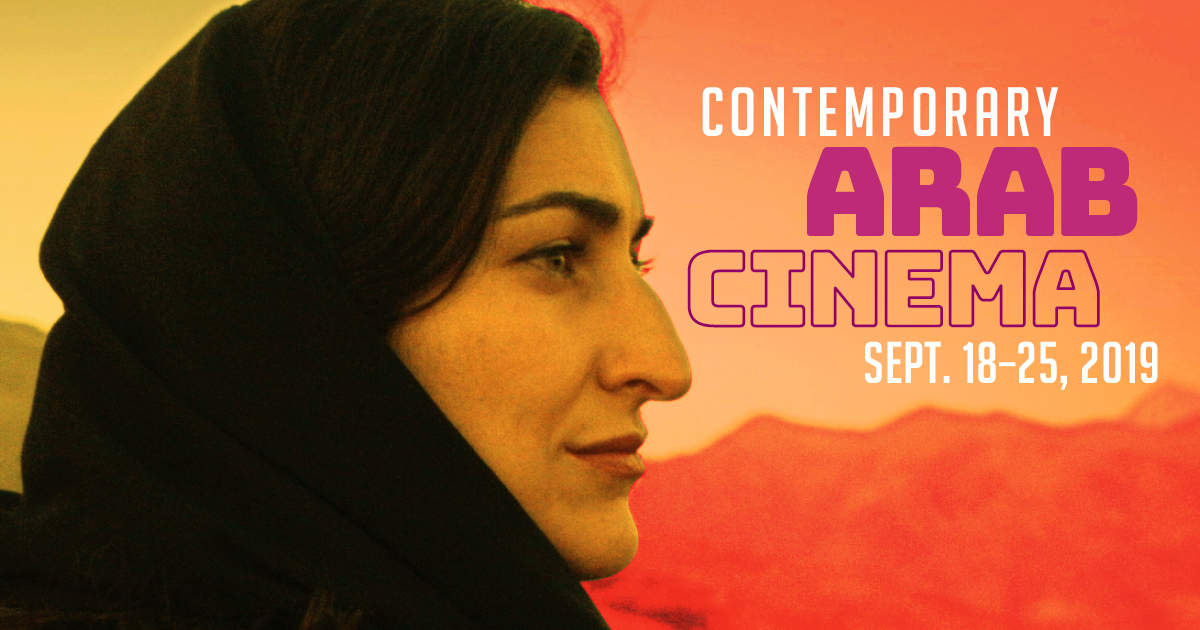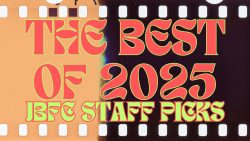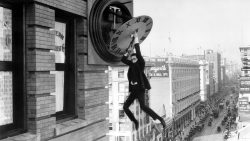Posted August 14, 2019
JBFC Mixtapes, Vol. 17: Contemporary Arab Cinema 2019
by Lina Matta, Contemporary Arab Cinema series curator
JBFC Mixtapes is an initiative from the Burns to highlight the music—from soundtracks to scores—that makes the cinematic experience so special. Vol. 17 comes to us from Lina Matta, in celebration of this year’s Contemporary Arab Cinema series at the JBFC! A Lebanese-American based in Dubai, Lina Matta is the director of MBC Group’s channels 2, 4, Max, and Variety. She has programmed the JBFC’s annual Contemporary Arab Cinema series since 2012. Listen to her carefully curated mixtape as a playlist on the JBFC’s YouTube channel, or click the links below to listen to each song individually. When you’re done, head to the Contemporary Arab Cinema series page to snag tickets for the 2019 series, kicking off Sept. 18 at the JBFC!
JBFC Mixtapes, Vol. 17: Contemporary Arab Cinema 2019
- “Bayn El Byout” by Melhem Barakat – The documentary The Swing (screening Sept. 23) is about an Everyman couple growing old in Lebanon. A lifetime lived, secrets kept and the winter of their life knocking on the door. “Beyn el Byout” literally means “between the homes,” that is—the lives that unfold daily in each and every one of them. The song dates back to a time when the characters in the documentary were young and full of life.
- “Lamouni li gharou minni” by Ghalia Benali – This song was originally song by the Tunisian Sintara, Hedi Jouini. A documentary on him by his granddaughter was screened during the JBFC’s 2018 Contemporary Arab Cinema series, The Man Behind the Microphone. For this year’s selection, I chose an interpretation by Ghalia Benali, another Tunisian singer. It stands, as the main character Brahim in this year’s movie Fatwa (screening Sept. 19) does, in opposition to the extremism threatening his country.
- “Yalla Tnam Rima” by Fairouz– This is a lullaby by Fairuz, one of Lebanon’s foremost singers. I initially chose it for Capernaum (screening Sept. 23) for the irony it must present to the main character Zain, who, when the film begins, is suing his parents for giving him life in this miserable world. But then I thought of For Sama (screening Sept. 20), and this mother’s heartrending ode of a movie to her newborn raised among war and death in Aleppo, Syria, or the boys of Of Fathers and Sons (screening Sept. 22), reared to be soldiers of God.
- “Kalam el Nas” by George Wassouf – One of Syria’s most popular singers, singing about not caring what people say. He is, in this case, referring to love and how people may judge him for the woman he chose to fall in love with. That judgement in the lyrics could also fall on Waad, Sama’s mother, in For Sama (screening Sept. 20), who gave birth to not one but two babies in the midst of a war zone. Her decision to stay may have incurred the wrath of many who thought she was crazy not to leave the country—if not for herself then for her children. However, her beliefs and her urgent need to stay and document the horrors that were happening to her city were a much stronger pull.
- “Ahwak” by Abu – Last summer Abu had one of the catchiest songs in Egypt, “Tlat da3at;” this is his other one: “Ahwak,” a reinterpretation of a classic. It’s catchy, and shows the joie de vivre of the Egyptians in spite and despite the hardships most of them face on a day to day basis. This is the side of Egypt we will see in EXT. Night (screening Sept. 21) and Yomeddine (screening Sept. 18).
- “El Nafseya Mehtaja” by Balqees – A young popular Emirati singer. Her father, a Yemini, was himself a popular singer in Yemen. Her mum is from the UAE; hers is the modern Emirates—one of youth, energy and exuberance. We catch a glimpse of that in Rashid & Rajab, screening Sept. 19.
- Music by Ahmed Fathi – The father of Balqees (see song #6), a famous Yemeni singer.
- “Shahrayar Blues” by Jawhar – With roots in North African Chaabi music, this song gets to the soul of the documentary When Arabs Danced, screening Sept. 20.
- “Ng’ume (Smile)” by Reflections BYG – Performed by female artists from South Sudan, this song has the spirit of aKasha, screening Sept. 22.
- “Rabuna” by Queen Zee – Another female artist from Sudan, embodying the spirit of aKasha, screening Sept. 22.
- “Im Nin’Alu” by Ofra Haza – Ofra Haza is a Yemini/Israeli singer who was popular in the 90’s. Like in Tel Aviv on Fire (screening Sept. 25), she combines Arab and Israeli talent and makes beautiful art.
- Bil3ax – A Palestinian indie band!
JBFC original series Contemporary Arab Cinema is presented with generous support from the Agnes Varis Trust, the National Endowment for the Arts (NEA), and ANA. Tickets are available for every 2019 Contemporary Arab Cinema screening through the series page on the JBFC website.
Want to stay up to date on what’s happening at the JBFC? Make sure to sign up for our ebulletin HERE.



